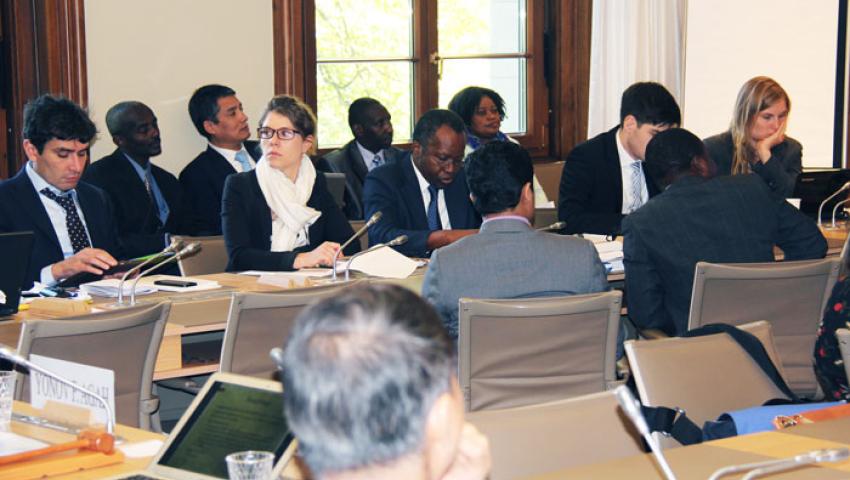Public Forum workshop discusses activities of WTO Chairs Programme

Thursday, October 1, 2015
A workshop focusing on the experiences of academic institutions in the WTO Chairs Programme was held on the second day of the Public Forum on 1 October. The event was organized jointly by the WTO’s Institute for Training and Technical Cooperation and the Economic Research and Statistic Division and was chaired by Deputy Director-General Yonov Frederick Agah.
The event discussed the experiences of WTO Chairs and the lessons learned from their participation in the Chairs Programme; the main challenges faced by Chairs; how the Chairs make policy recommendations; and what further support can be provided to the WTO Chairs.
Following a short introduction by DDG Agah, WTO Chairs provided their perspectives on how their work is relevant for policy decisions. Case studies were presented by Professor Vera Thorstensen (Getulio Vargas Foundation, Brazil), Professor Pinar Artiran (Istanbul Bilgi University, Turkey) and Professor Keith Nurse (University of West Indies, Barbados). Each presentation showed how academics can work with policy makers in the interest of developing better trade policy.
Professor Thorstensen described how the Getulio Vargas Foundation has worked with trade officials and ministries in the delivery of activities. Professor Artiran provided concrete examples of how the activities implemented by Istanbul Bilgi University have contributed to the trade policy debate. She presented her work on WTO trade remedy rules and dispute settlement procedures in Turkey and more recently how an outreach event on trade in services organized by the university had contributed to the national discussion on economic integration and competitiveness.
Professor Nurse provided an overview of the activities organized by the University of West Indies and also shed some light on a recent research project, Dynamic Trade Policy and Small States for the Pacific and the Caribbean, where he had outlined key areas for trade policy expansion which would aid small states in boosting exports and facilitating trade diversification in small developing states.
The management of the WTO Chairs Programme made two presentations on activities undertaken in the three pillars (research, curricula development, outreach) of the programme and on a few of the research projects that the WTO will be undertaking in 2016. The management team specified that the 2016 WTO World Trade Report will be on trade and small and medium-sized enterprises, and encouraged the Chairs to send in case studies. Furthermore, the WTO and World Bank recently published a book on trade and reducing poverty. The Chairs were invited to develop a collection of case studies on trade costs and poverty on broad topics such as the rural poor, informal workers, women and people living in fragile states.
DDG Agah concluded the workshop by congratulating all the Chairs on the work they have undertaken and on raising awareness of WTO trade issues and adding to the research that can be used by policy makers.

